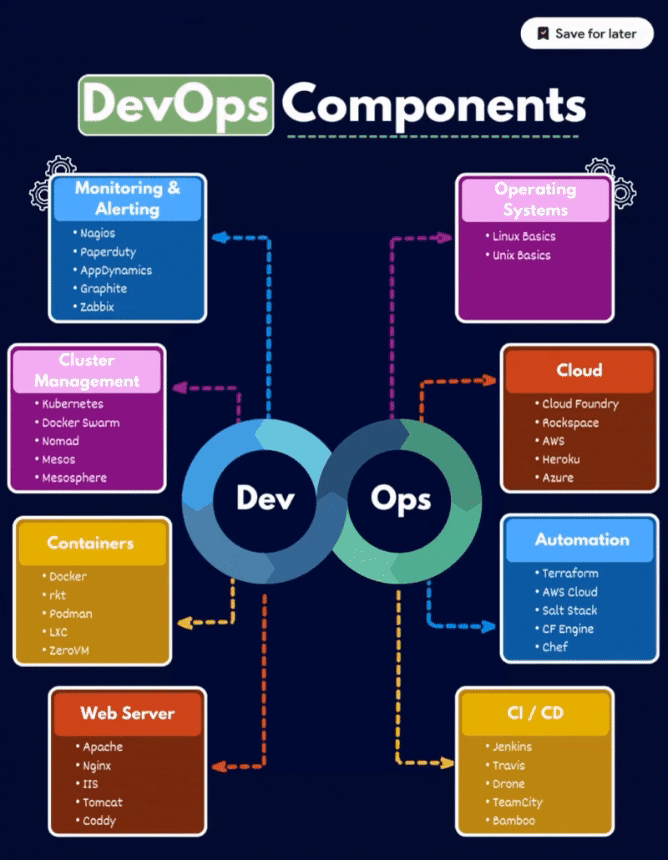Maximizing DevOps Components for Efficient Development and Deployment
In the realm of DevOps, leveraging various components is crucial for ensuring smooth development cycles, seamless deployments, and reliable system operations. Let’s delve into each key component to understand its significance and best practices:
Monitoring & Alerting
Implementing robust monitoring systems allows teams to track system performance, identify potential issues proactively, and ensure real-time visibility into application health. Setting up alerting mechanisms ensures that teams are promptly notified of any anomalies or performance degradation, enabling swift action and problem resolution.
Operating Systems Optimization
Selecting and optimizing operating systems for deployment is essential for ensuring stability, security, and optimal performance. Regularly updating and patching systems helps mitigate security vulnerabilities and ensures that the environment remains up-to-date with the latest enhancements and fixes. Implementing best practices for OS-level configurations further enhances system reliability and security.
Cluster Management
Efficient cluster management tools facilitate resource orchestration, ensuring high availability and scalability of clusters. Implementing load balancing strategies helps distribute traffic evenly across servers, optimizing performance and minimizing downtime in high-traffic scenarios.
Cloud Utilization
Leveraging cloud services provides organizations with flexible and scalable infrastructure options. Optimizing cloud resource allocation helps minimize costs while ensuring adequate resources are available to meet application demands. Implementing robust security measures protects cloud-based assets from potential threats and vulnerabilities.
Containerization
Containerization offers consistency in deployment across various environments, streamlining the development and deployment process. Implementing container orchestration tools simplifies management tasks and ensures scalability and reliability. Adhering to best practices for container security helps mitigate risks and safeguard sensitive data.
Automation plays a pivotal role in streamlining workflows and enhancing efficiency within DevOps practices. Implementing automation scripts for repetitive tasks reduces manual intervention and human error. Configuration management tools enable infrastructure as code, allowing teams to manage and provision resources programmatically.
Web Server Optimization
Configuring and optimizing web servers for performance ensures smooth and efficient delivery of web applications. Implementing robust security measures protects web applications from potential threats and vulnerabilities. Regular monitoring and tuning of web server configurations help maintain optimal performance and reliability.
CI/CD Implementation
Continuous integration enables automated code testing, ensuring code quality and reliability throughout the development process. Continuous delivery facilitates efficient and reliable deployments, automating the release process and reducing deployment cycles. Version control systems track changes in the codebase, providing visibility and traceability for collaborative development efforts.
Incorporating these DevOps components ensures a streamlined development and deployment process, fostering collaboration and efficiency within your team. By leveraging best practices and embracing automation, organizations can achieve faster time-to-market, enhanced product quality, and improved customer satisfaction.
By integrating these components effectively, your organization can establish a robust DevOps culture and drive continuous improvement across the software development lifecycle.
Keep visiting QuickShare and write to us in the comments below.

